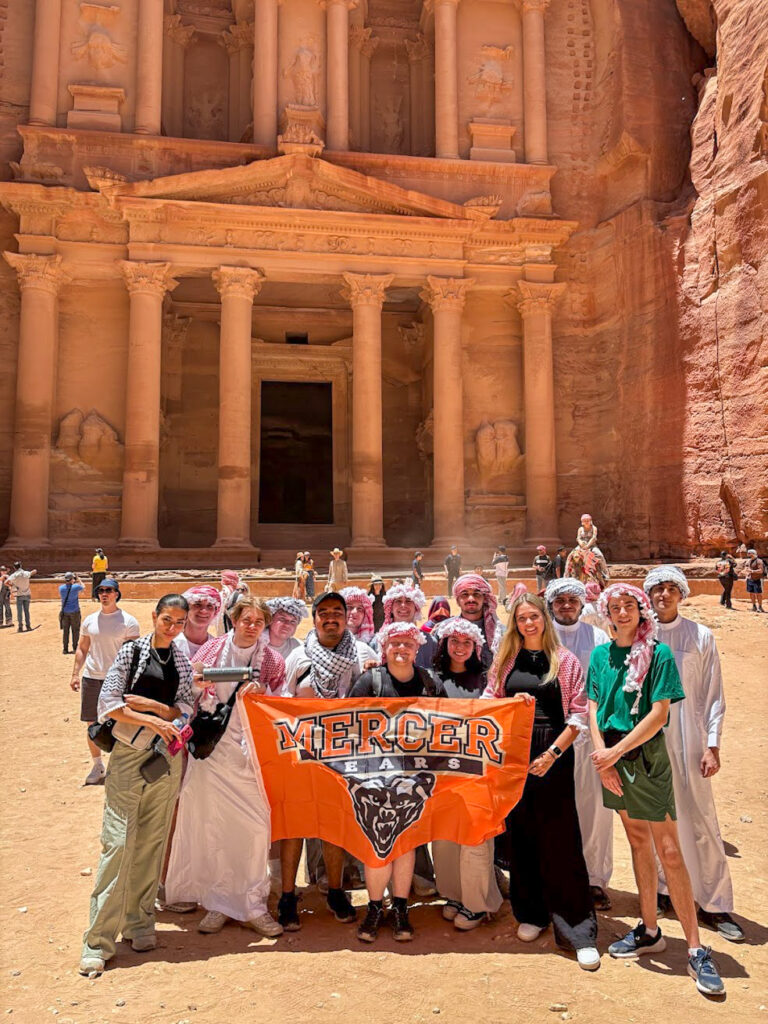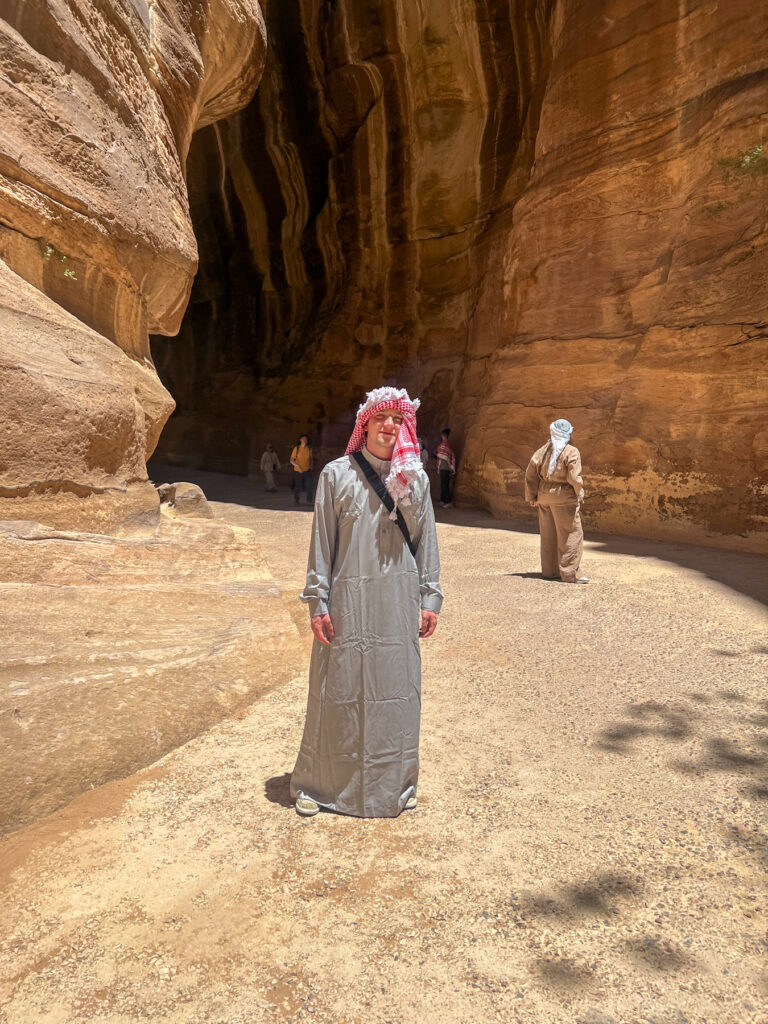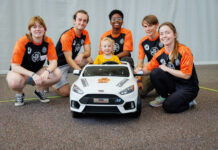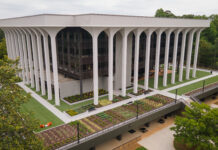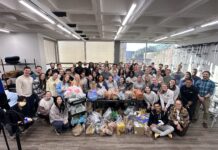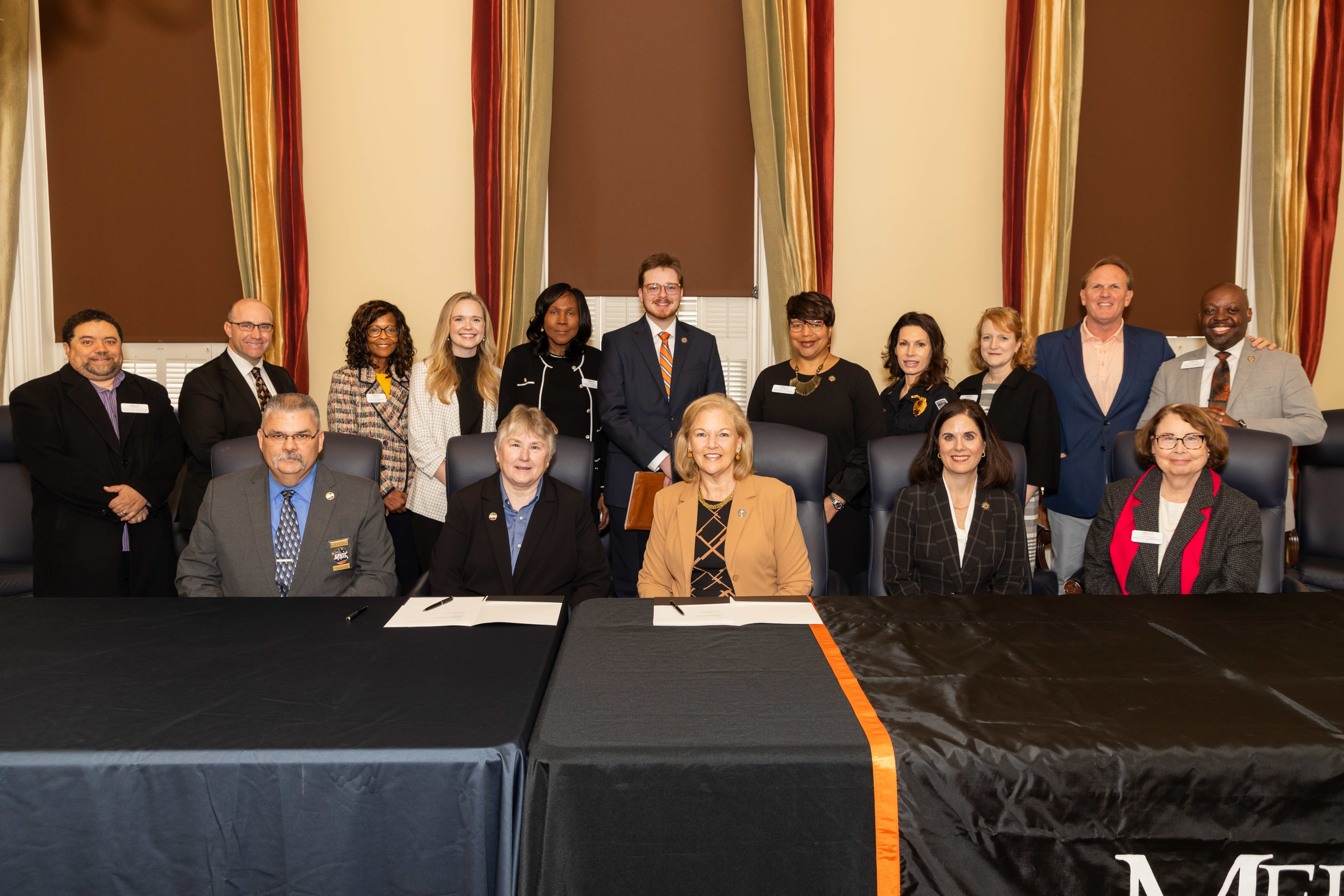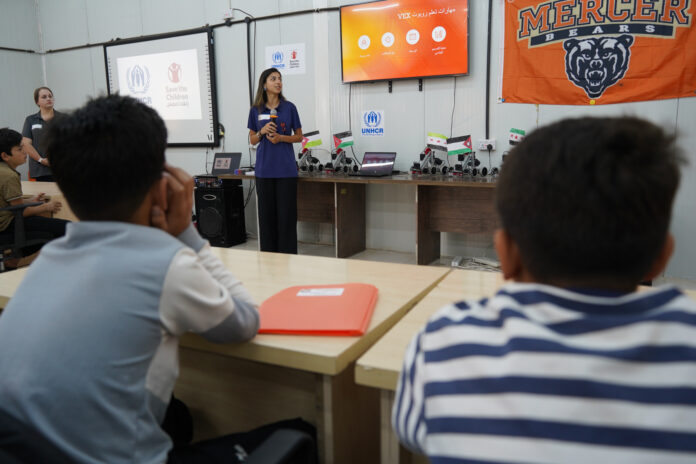
A Mercer University team traveled to Jordan this summer to teach robotics, programming and engineering to children in a Syrian refugee camp as part of Mercer On Mission.
The Za’atari camp hosts 70,000 to 80,000 refugees, and more than half are children under the age of 18, according to The UN Refugee Agency. The Mercer team — led by Dr. Amro Khasawneh, assistant professor of industrial engineering and industrial management, and Dr. Sarah Bauer, assistant professor of environmental and civil engineering — served about 100 middle school-age children living at the camp.
“The idea was not just to teach them like in a typical classroom. It was more active learning and sport-based learning,” Dr. Khasawneh said. “The focus was that there’s very minimal lecturing. It was 10% lecturing, and a lot of it was just activities and active learning where our students talked them through how to design and then just building and designing.”
Dr. Khasawneh grew up in Jordan near the Syrian border and the Za’atari camp. He always had a desire to serve that community, and when he learned about Mercer On Mission while interviewing at the University, it seemed like the perfect fit. He joined the faculty in 2022, and this was the first year of the program.
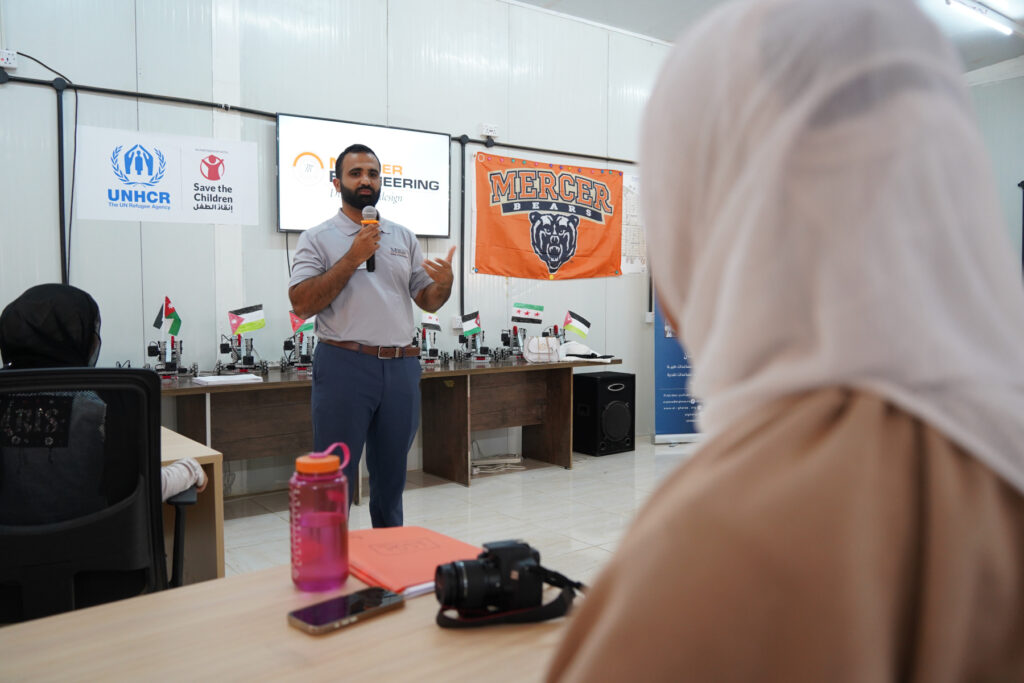
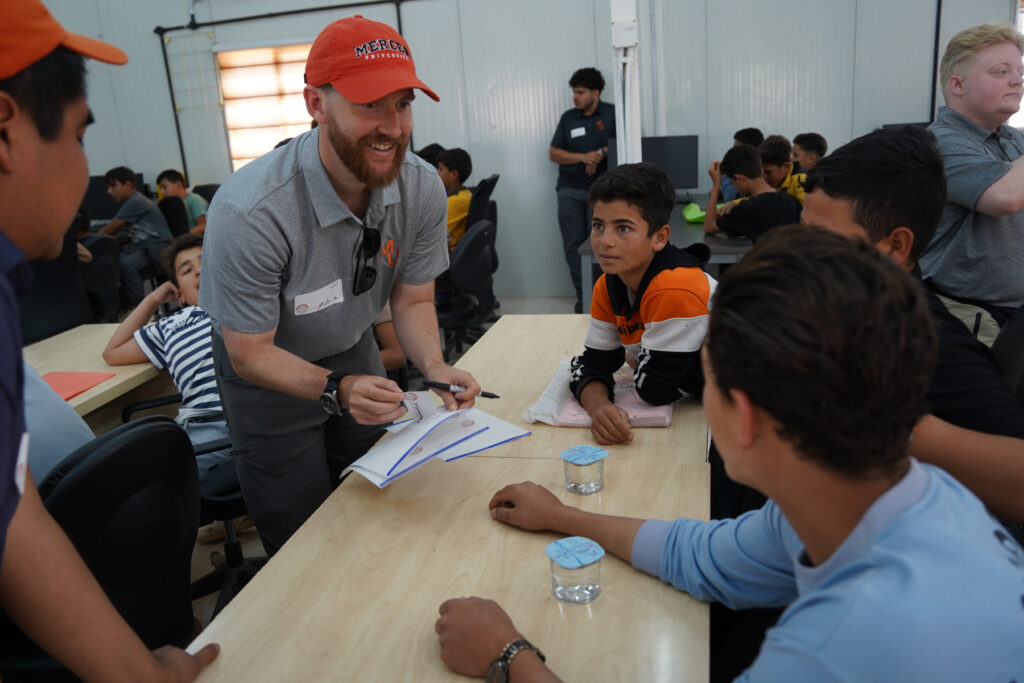
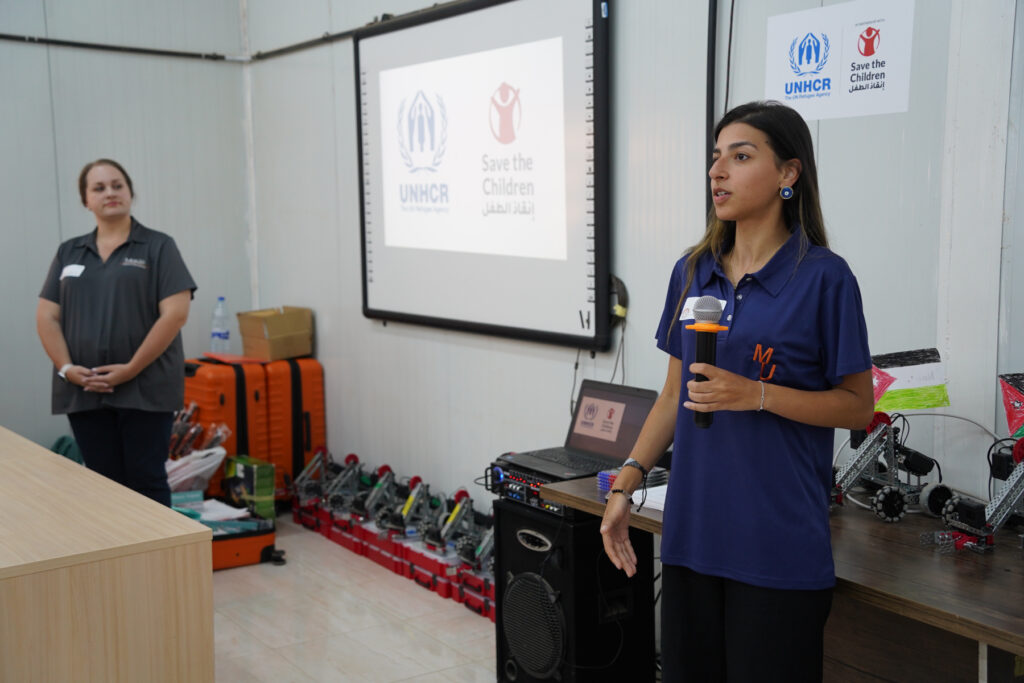
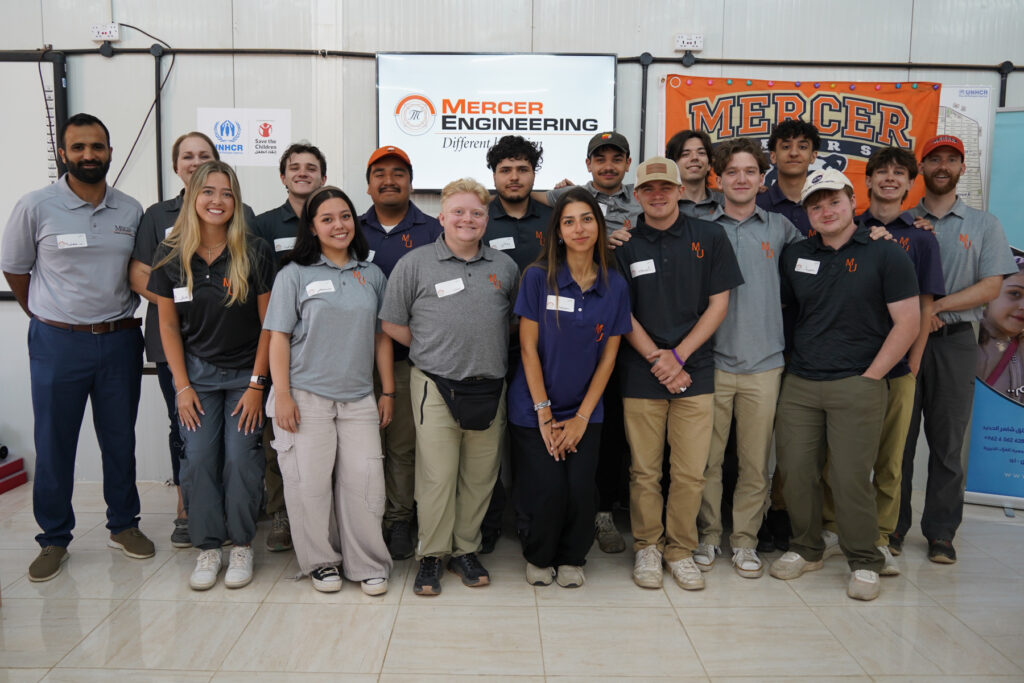
At the Za’atari camp, the Mercer team held two sessions per day — one in the morning for the boys and one in the afternoon for the girls. Children in each session were divided into 14 teams, each led by a Mercer student coach. Students spent one week building and programming a robot to play soccer and one week building K’nex cars.
“That week taught them a lot about the different steps and stages to the engineering design process, so they built several iterations of cars with the K’nex pieces and then the final one to compete in the competition with specifications and rules they had to follow,” Dr. Bauer said.
The Mercer team presented the materials in Arabic, which Dr. Khasawneh and some students spoke. Non-Arabic speakers used a translation app on their phones to communicate with the Syrian children, but the joy the kids conveyed needed no translation.
“They were just like any other kids when you give them a K’nex set or robotics. They’re going to be really excited and enjoy it, and they did,” said Henry Fraley, a rising junior majoring in environmental engineering. “It was hard because we didn’t speak Arabic, and they didn’t speak English. But they would teach us words in Arabic, and we would teach them words in English, so it was really cool to see how we interacted and made it work.”
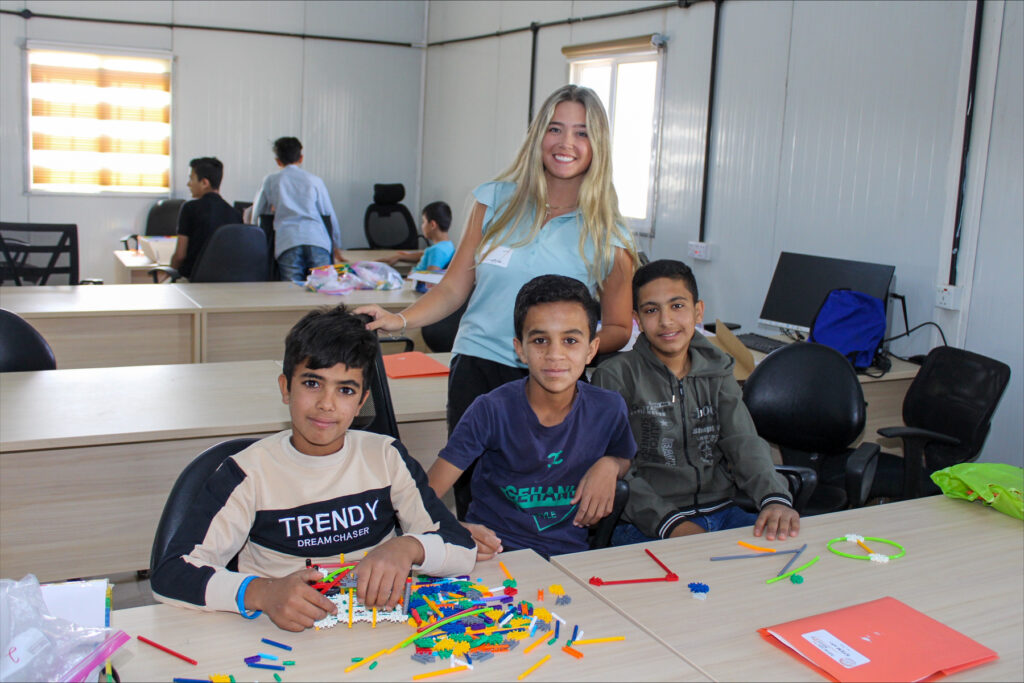
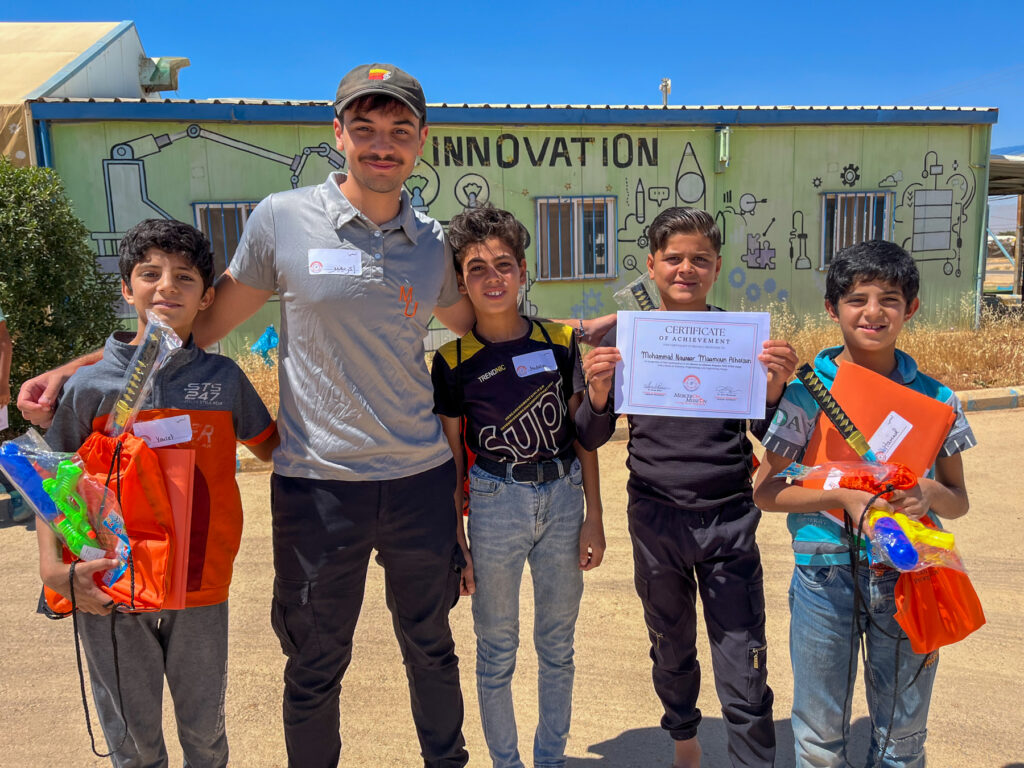
Xzavier Longacre, a rising senior majoring in environmental engineering, said he loved seeing the impact the camp had on the students.
“These kids begged us to stay for another week,” he said. “They loved the activities that we did. They wanted to see more from us. We provided something that I don’t think they really have that much access to, or they don’t have camps like that while we’re gone.”
Knowing the children didn’t want the Mercerians to go made leaving bittersweet, said Syrin Suleiman, a rising senior majoring in global health studies.
“I just cherished making those bonds with the kids more than anything, and it felt like that connection we had with them is something that they’re going to carry with them for a very long time,” she said.
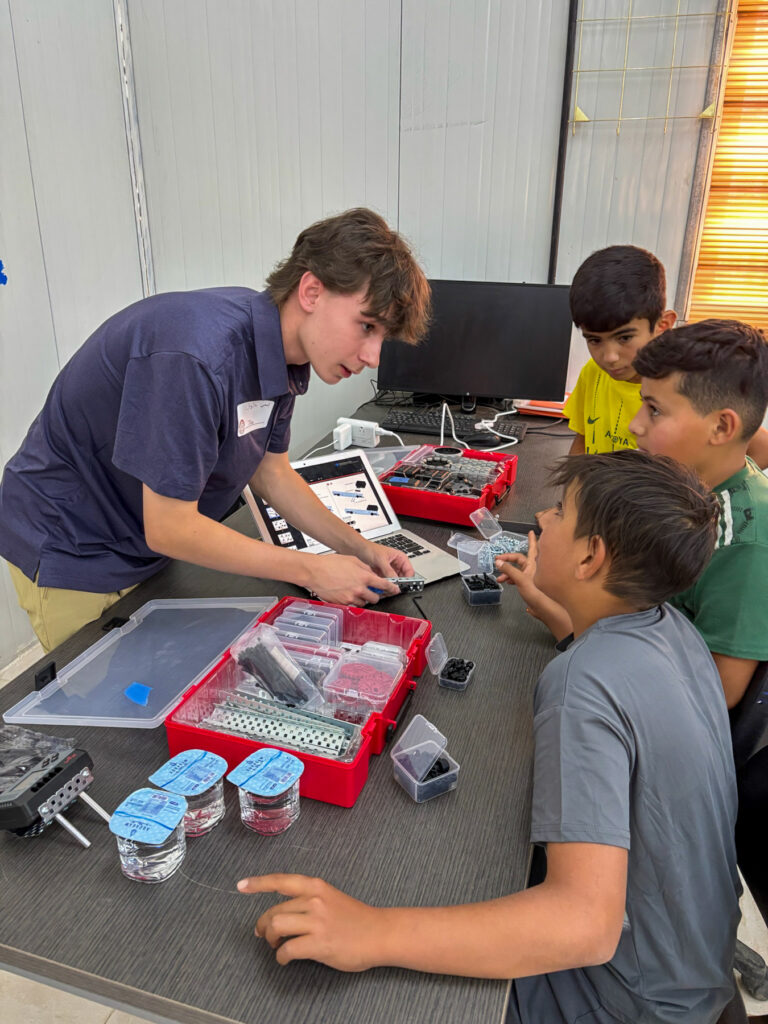
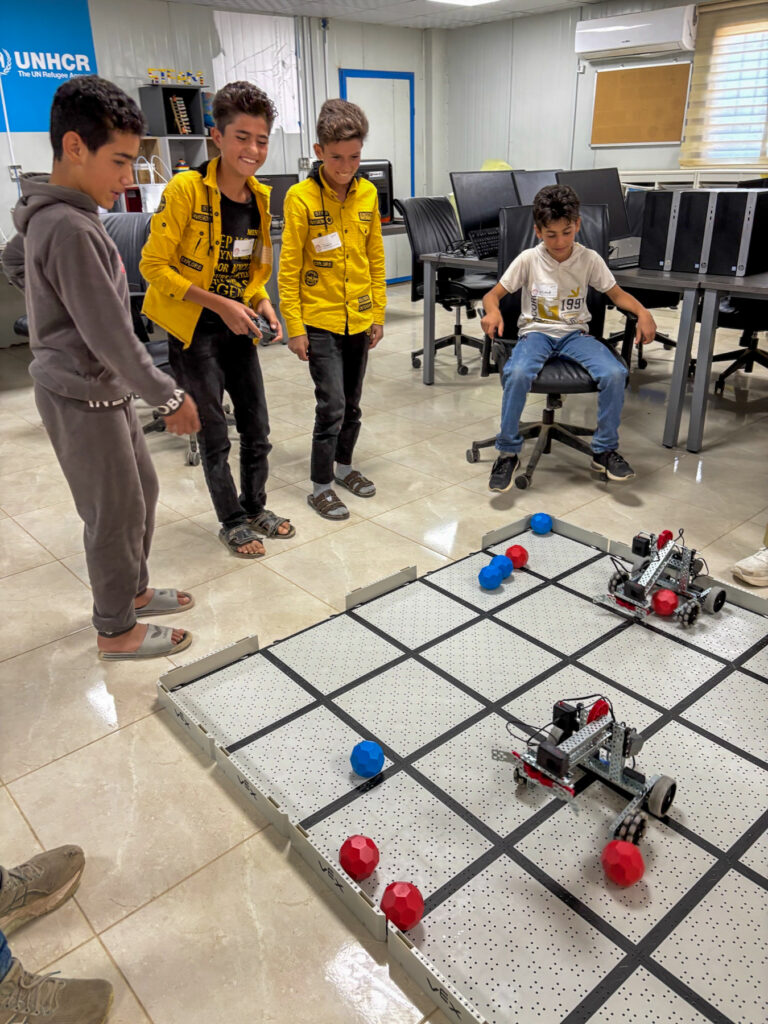
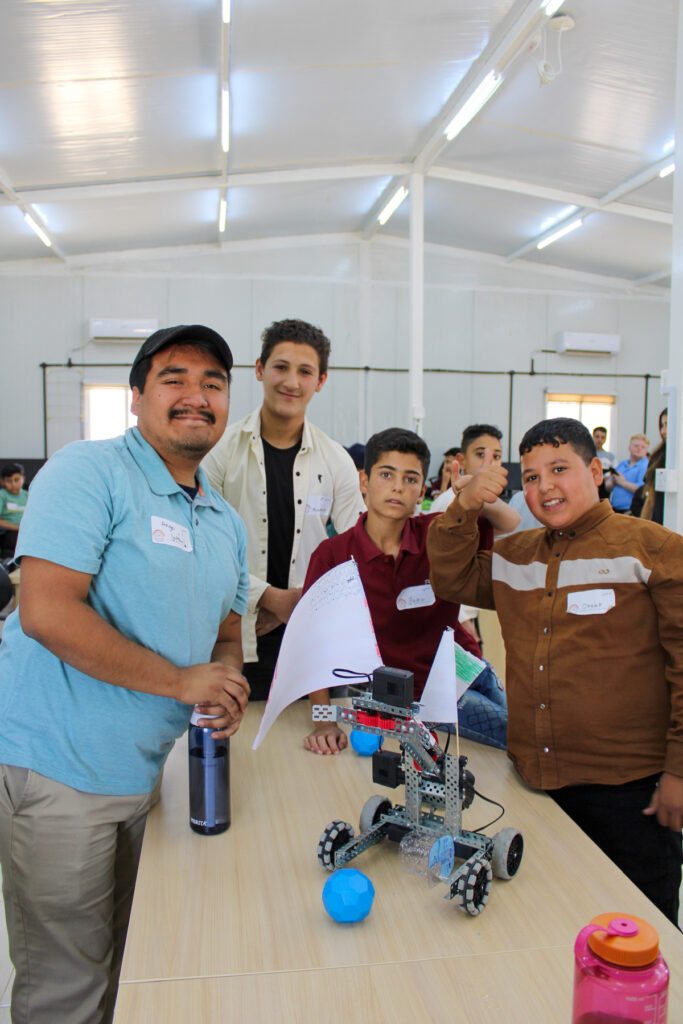
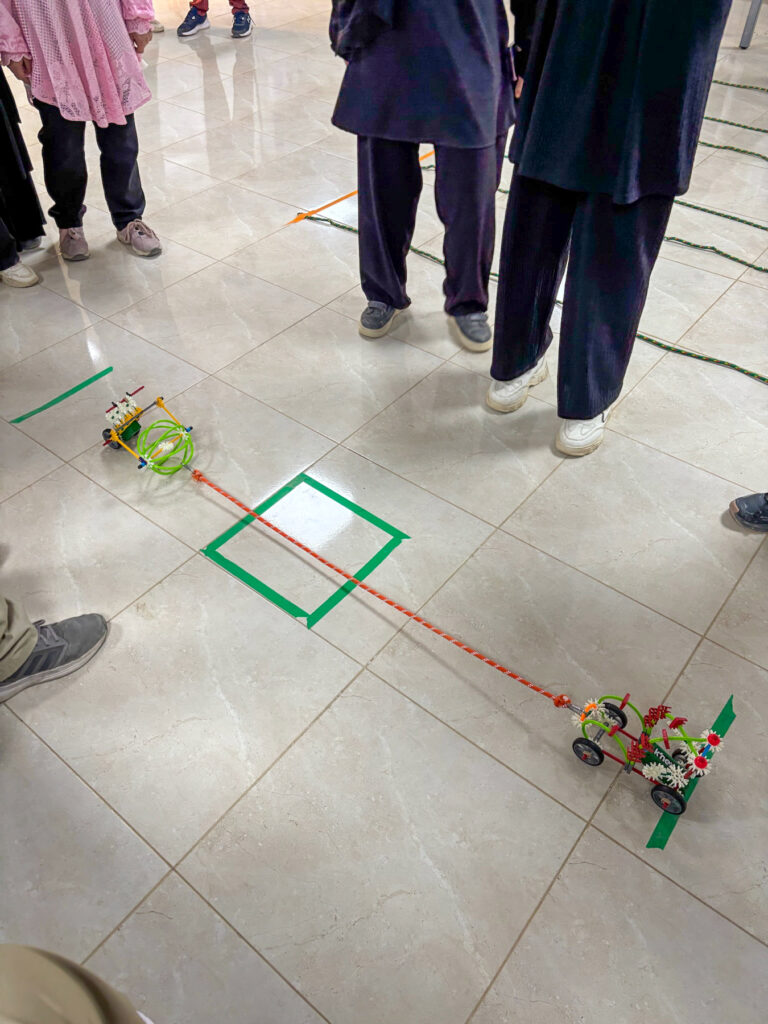
Suleiman grew up in Jordan but didn’t have any interaction with the Syrian refugee community until this experience. As a native Arabic speaker, she presented much of the material and helped with translation.
“I think the kids’ interest, specifically in engineering, really developed over the two weeks that we were with them,” she said. “A lot of them knew about the idea and concept of engineering, but because most of our students were engineering students, they got to learn about different types of engineering.
“And then, all of a sudden, we had kids telling us, ‘I want to be like you. I want to be an engineer. I want to be this type of engineer.’ … These really young minds were talking passionately about using what they’ve learned or about pursuing engineering to rebuild their country.”
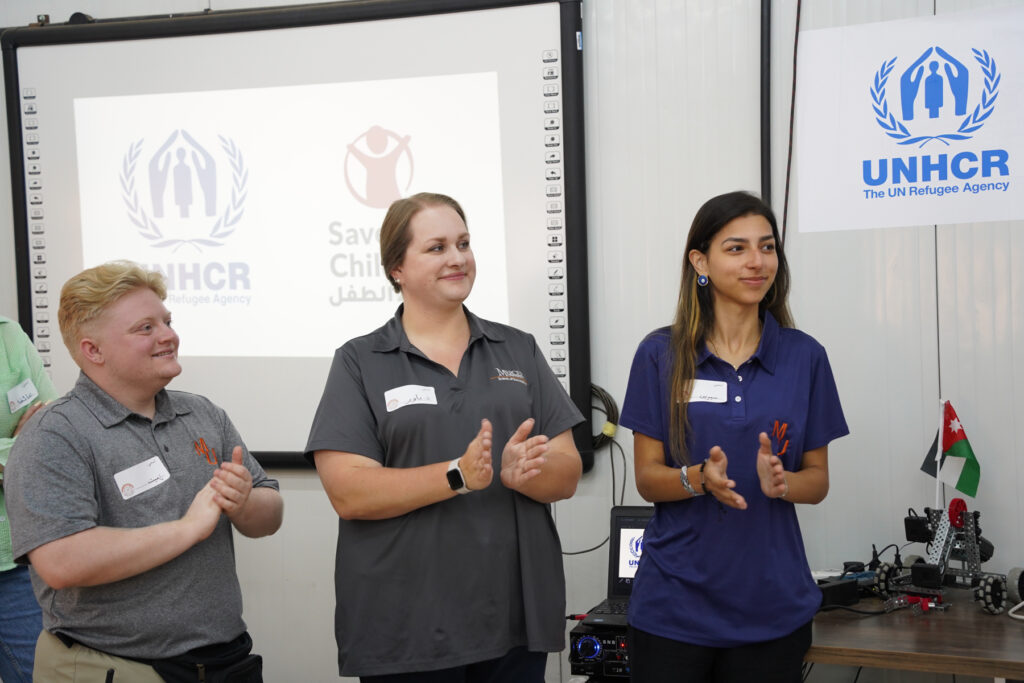
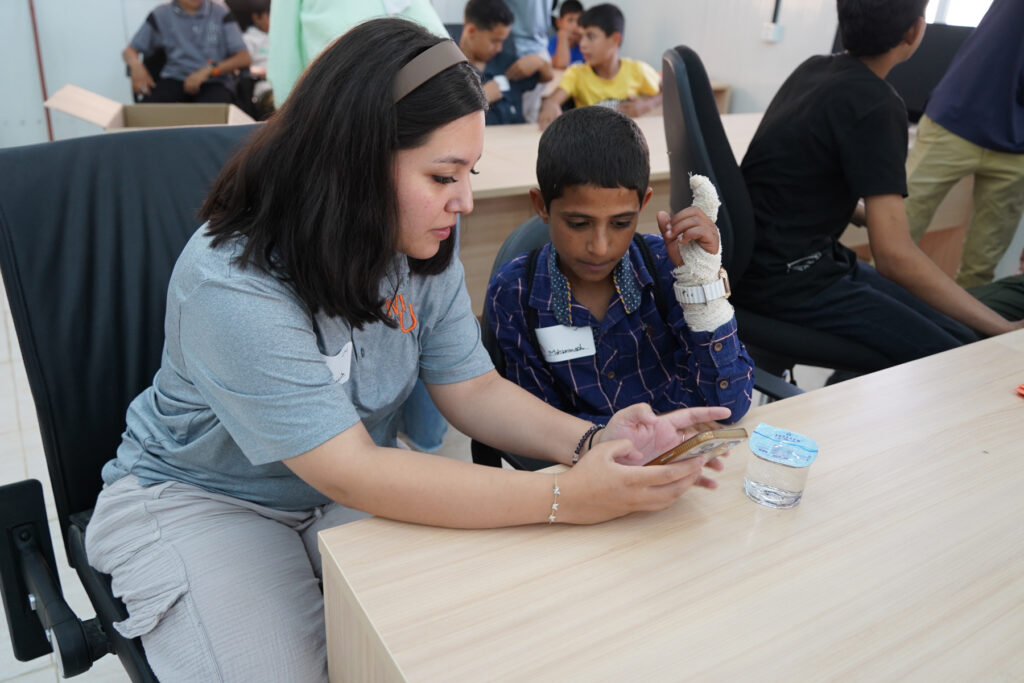
Halley Smith, who is pursuing a master’s in technical management in the School of Engineering, said the trip opened her eyes to global issues like the Syrian civil war and the reality of living in Jordan.
“You hear all these things, and they’re not always true,” she said, noting how some family members did not want her to go on the trip because they feared how she would be treated as a woman. “I got there, and it was nothing like that. I was just able to be myself, and everybody else was being themselves too. It wasn’t like the way that people back home told me it would be.”
Helping these children was one of the most impactful things Smith said she could do.
“They are the future of Syria,” she said.
